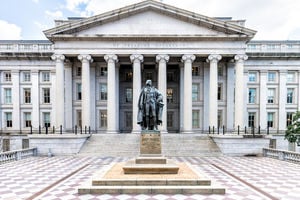How Car Wash and Flex Space Investors Can Maximize New Tax Advantages
On July 3, 2025, Congress passed the One Big Beautiful Bill (OBBBA)—a sweeping tax and spending package poised to reshape the landscape for real estate and alternative investing. While the headlines focus on politics, the real story for passive investors is this: the bill delivers powerful new tax advantages that make investing in car washes and flex industrial space even more attractive.
If you’re earning passive income through real estate syndications or private equity funds, this guide breaks down everything you need to know, and how to strategically position yourself to benefit.
100% Bonus Depreciation Is Back
What Changed: The bill restores 100% bonus depreciation for qualifying real estate assets placed in service starting in 2025. Operators can now fully write off the cost of improvements, equipment, and renovations in the first year, rather than depreciating them over time.
Why It Matters for Passive Investors:
- Larger first-year tax deductions flow directly to you via K-1s
- Reduced taxable income = stronger after-tax returns
- Particularly impactful in capital-heavy assets like express car washes, where equipment upgrades are frequent
Strategy Tip:
Look for operators performing cost segregation studies to further accelerate depreciation benefits and enhance your tax efficiency.
23% Qualified Business Income (QBI) Deduction
What Changed: The pass-through deduction for qualified business income has increased from 20% to 23%. This means investors in LLCs, LPs, or syndications can now deduct more of the income reported on their K-1s.
Why It Matters for Passive Investors:
- Higher deductions reduce your federal tax bill
- Directly boosts net income from passive real estate investments
- Applies to income from car wash and flex space funds, depending on your structure

Higher SALT Deduction Cap
What Changed: The bill raises the cap on State and Local Tax (SALT) deductions, potentially increasing it from $10,000 to as high as $30,000–$40,000.
Why It Matters for Passive Investors:
- If you live in high-tax states like NY, NJ, or CA, you’ll be able to deduct more on your federal return
- Combined with QBI and bonus depreciation, this creates compounded tax efficiency
Pro-Business Policies Fuel Asset Growth
What Changed: The bill includes provisions to stimulate small business growth and reduce regulatory barriers, creating stronger economic conditions for real estate tied to everyday consumers and entrepreneurs.
Why It Matters for Real Estate Investors:
- Car wash usage tends to increase alongside economic expansion and rising vehicle traffic
- Flex space leasing benefits from demand by contractors, trades, startups, and service-based businesses
- More small businesses = more tenants and customers
Interest Rate & Inflation Watch
What Changed: The bill is projected to add over $3 trillion to the federal deficit. While not an immediate concern, this could lead to upward pressure on interest rates in future quarters.
Why It Matters for Investors:
- Property values and cap rates may shift in response
- Borrowing costs could rise, impacting leveraged investments
- Fixed-rate financing and conservative underwriting become more valuable
Summary Table: How the Tax Law Impacts You
| Policy Update | Passive Investor Benefit |
| 100% Bonus Depreciation | Larger K-1 deductions, stronger early cash flow |
| 23% QBI Deduction | More income shielded from federal taxes |
| Higher SALT Deduction Cap | Additional relief for high-income investors in high-tax states |
| Pro-Business Growth Policies | Higher demand for car washes and flex space tenants |
| Deficit & Interest Rate Pressure | Encourages fixed-rate and stable asset strategy |
Final Thoughts: Why This Law Is a Win for Alternative Investors
This new tax law doesn’t just improve the economics of real estate investing—it solidifies the advantages of alternative investments like express car washes and flex space.
With stronger depreciation rules, enhanced deductions, and business-friendly growth incentives, passive investors now have more tools than ever to grow wealth while minimizing tax exposure. These asset classes already offer cash flow, resilience, and diversification—and now, they’re even more tax-advantaged.
How QC Capital Is Responding
At QC Capital, we’re already putting this law to work for our investors. By accelerating cost segregation studies, optimizing capital improvements, and targeting assets with long-term growth upside, we’re maximizing every new advantage this bill offers.
If you're seeking passive income, tax efficiency, and reliable real estate performance, this is your moment.
📩 Learn more by emailing [email protected] and discover how you can benefit from the most investor-friendly tax environment in years.


